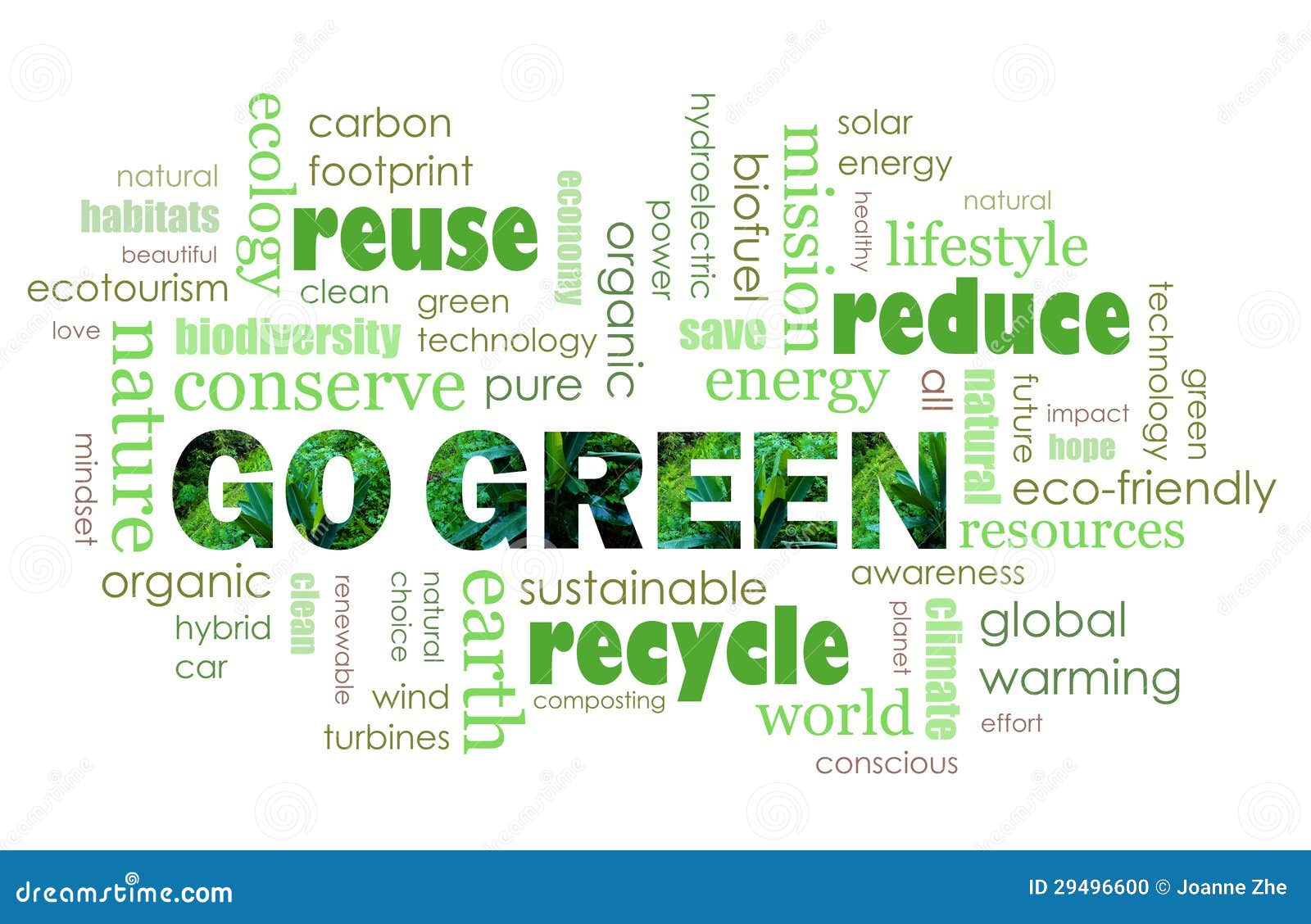
Image source: https://thumbs.dreamstime.com/z/go-green-eco-friendly-concept-29496600.jpg
Fortunately, managing business waste is not as unsanitary as it sounds. All it really means is being realistic about the resources available, how they are used, and how they can be used more efficiently.
Waste management is an ongoing process, but here are five tips to help you get started.
Start with a Waste Assessment
The best way to manage waste is to identify the real opportunities for reducing waste.
Assess the amount of waste created by looking at what waste is currently being generated. Follow the waste collection from creation through the management process and then see how it is disposed of. Consider whether there are items that could be reduced or recycled, and look into local programs design for recycling to see if there are opportunities the business is not taking advantage of yet.
Go Plastic Free
Plastic is not only one of the largest contributors to waste, but it can also take hundreds or thousands of years to degrade when it becomes waste. This makes it a good place to start when managing a business or organizations waste in an eco-friendly manner.
Start by making your office or campus a plastic-free zone by ordering products that have eco-friendly packaging.
Go further by encouraging employees to ditch plastic shopping bags and plastic bottles or utensils at work. Instead, encourage employees and visitors to carry eco-friendly cloth bags. It is also helpful to provide eco-friendly water bottles for staff to use at work. Provide incentives for employees who are compliant to build enthusiasm and momentum.
Of course, getting rid of all plastic is not possible, yet. But there are other options to some of the most popular plastic products. For example, if you need to provide disposable items, choose biodegradable plastics that can be recycled by your city or municipality.
Cutting plastic may seem complicated, but it is a simple place to start when managing business waste. Getting the whole team on board also sparks eco-friendly habits in staff, which could cut not only your business waste but the amount of household waste your area generates, which is even better for the environment.
Go Digital
If you have not yet moved to a digital record keeping and administrative system, this is the time to do so. Going digital means leaving behind expensive, one-use office supplies, and ditching those means it is possible to decrease waste.
Using digital filing and communication systems requires less paper, and there is no need to call in specialists when getting rid of sensitive paper records. However, it also means using less ink, fewer staples, rubber bands, and all the other things that end up in the trash. Removing the paper from paperwork gets rid of other waste, too!
Get Ahead of E-Waste
E-waste is waste from electronic products. It may sound foreign, but it is becoming a pressing issue in waste management. In fact, the UN and the EPA are making this a priority issue, and new regulations are likely to emerge to help combat the growing amount of e-waste making its way both into the appropriate waste areas as well as the illegal ones.
One of the best ways to manage e-waste is to minimize it. Look for devices that provide several functions so you do not need several different devices for one project. Once you own them, care for the devices to extend their life. Another great way to minimize waste is to buy electronics that are recognized as being environmentally friendly.
When it is time to get rid of your electronics, start by donating them to social projects first. Cell phones, ink cartridges, and all kinds of basic e-waste is often useful to others even when it is no longer useful for you. It is a great way to repurpose waste to benefit your community.
Compost Organic Waste
If you have an employee kitchen or cafeteria, reduce the amount of food waste you create by handing over compostable waste to your local or municipal compost system. If the municipality does not offer a compost problem, consider creating your own compost.
Composting requires some training, but it requires little investment. In fact, you may be able to repurpose the current waste area to set up a compositing program. All it often requires is separating garbage bins and buying compostable bags that make it easier to move the waste.
If your business does not create much food waste, considering joining up with other businesses to share the efforts of composting or the costs of sending the compost off-site.
There is no time like the present to find new ways to reduce your business waste, and doing so could even make your business more productive and profitable at the same time.


